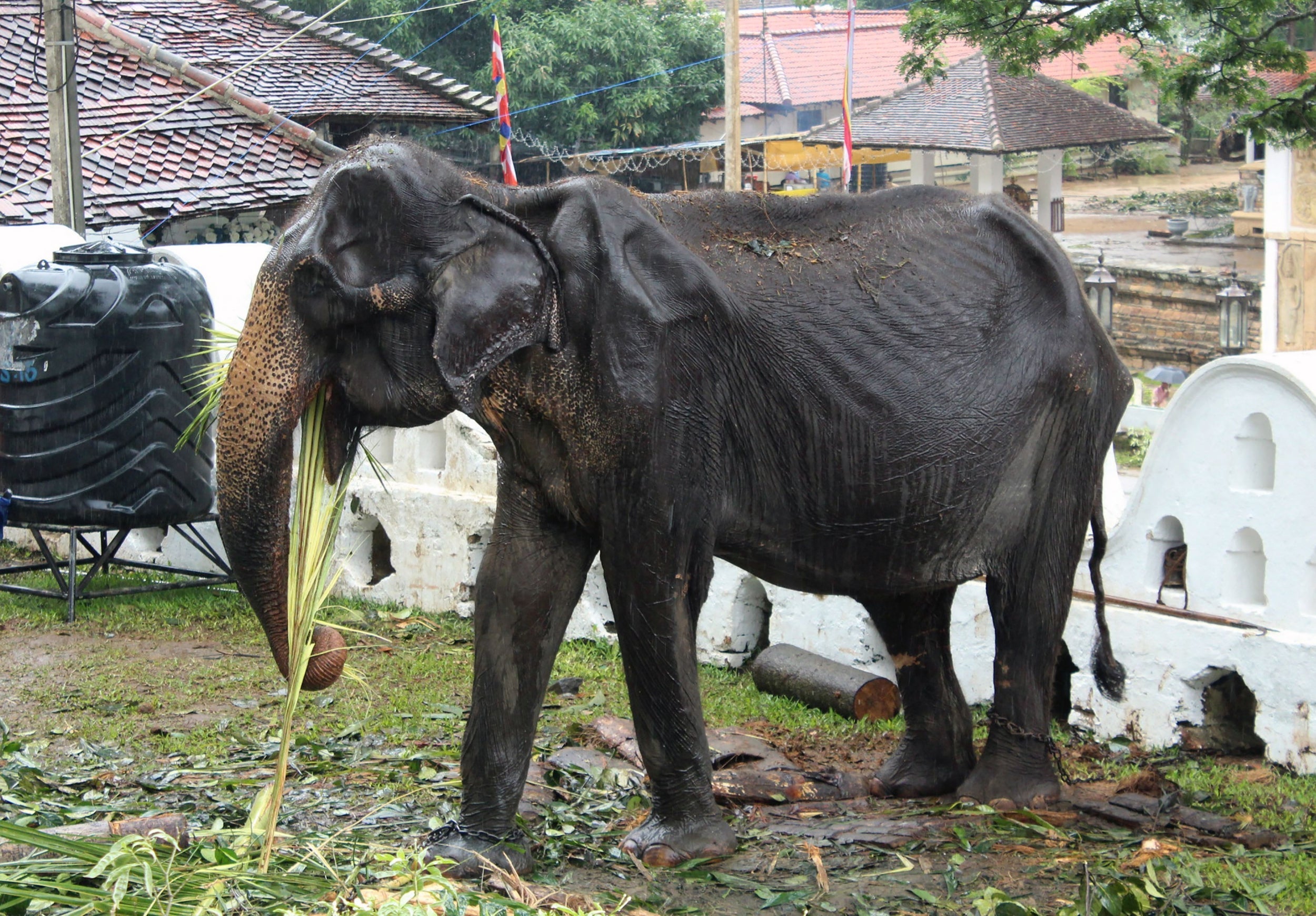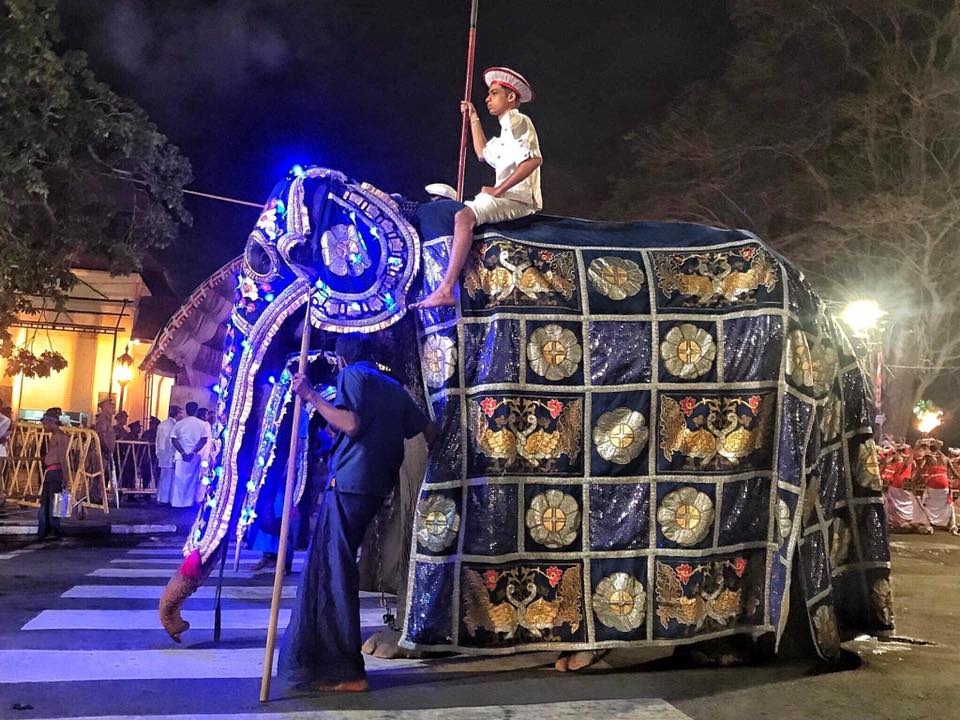Skeletal elephant forced to perform in Sri Lankan parade
70-year-old animal ‘short-shackled’ and covered in colourful costume to hide her gaunt body, charity says

Your support helps us to tell the story
From reproductive rights to climate change to Big Tech, The Independent is on the ground when the story is developing. Whether it's investigating the financials of Elon Musk's pro-Trump PAC or producing our latest documentary, 'The A Word', which shines a light on the American women fighting for reproductive rights, we know how important it is to parse out the facts from the messaging.
At such a critical moment in US history, we need reporters on the ground. Your donation allows us to keep sending journalists to speak to both sides of the story.
The Independent is trusted by Americans across the entire political spectrum. And unlike many other quality news outlets, we choose not to lock Americans out of our reporting and analysis with paywalls. We believe quality journalism should be available to everyone, paid for by those who can afford it.
Your support makes all the difference.Harrowing photos have emerged of an emaciated 70-year-old elephant forced to march in a Sri Lankan street parade.
The female elephant, who is called Tikiri, is covered in a colourful costume featuring bright lights so spectators do not see her gaunt body.
Tikiri is one of 60 elephants who work every night for 10 days as part of the Esala Perahera Festival that takes place in Kandy each July, according to the Save Elephant Foundation.
Lek Chailert, the founder of the charity, said the elephants are “short-shackled” so they walk more slowly amid the chaos of the night parade.
“Tikiri joins in the parade early every evening until late at night every night for ten consecutive nights, amidst the noise, the fireworks, and smoke,” Ms Chailert wrote on Facebook.
"She walks many kilometres every night so that people will feel blessed during the ceremony. No one sees her bony body or her weakened condition, because of her costume.
"No one sees the tears in her eyes, injured by the bright lights that decorate her mask, no one sees her difficulty to step as her legs are short shackled while she walks.
"For a ceremony, all have the right to belief as long as that belief does not disturb or harm another. How can we call this a blessing, or something holy, if we make other lives to suffer?"
Save Elephant Foundation shared the photos of Tikiri on Monday to mark World Elephant Day.

The charity helps to rescue and care for captive elephants across Asia and runs Elephant Nature Park in Chiang Mai.
Elisa Allen, the director of animal welfare charity PETA, said that elephants are frequently exploited at tourist traps and temples in Sri Lanka and urged tourists to avoid these attractions.
“Sri Lankan authorities must stop allowing such atrocious cruelty and send this poor elephant to a reputable sanctuary where she can be assessed by veterinarians and, if treatment is viable, live out her remaining years in peace,” she said.
"We remind everyone that elephants don't naturally obey human commands or allow humans to ride on their backs. They do so because mahouts (handlers) carry bullhooks - iron rods with a sharp hook on one end - to dig into their flesh and other weapons that they learned as babies to fear."
Ms Allen added: “Tourists visiting Sri Lanka can help elephants by refusing to ride them and by avoiding any attraction that offers or endorses elephant rides, keeps the animals chained, or forces them to perform - including the Pinnawala Elephant "Orphanage" and Dehiwala Zoo.”
The Sacred Tooth Relic, a Buddhist temple that hosts the festival, did not immediately reply to The Independent's request for comment.
Join our commenting forum
Join thought-provoking conversations, follow other Independent readers and see their replies
Comments